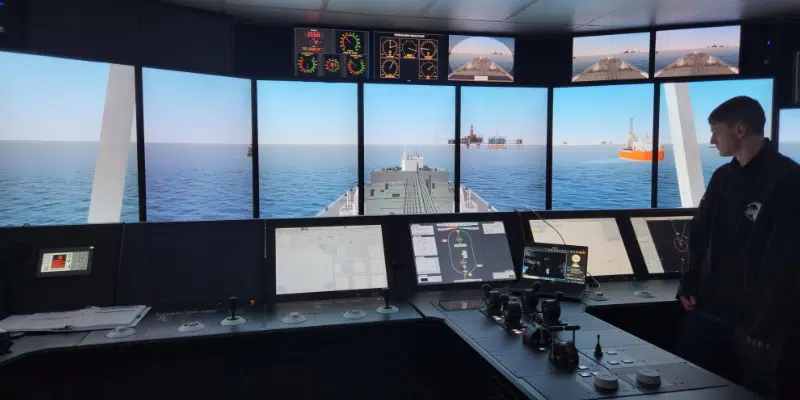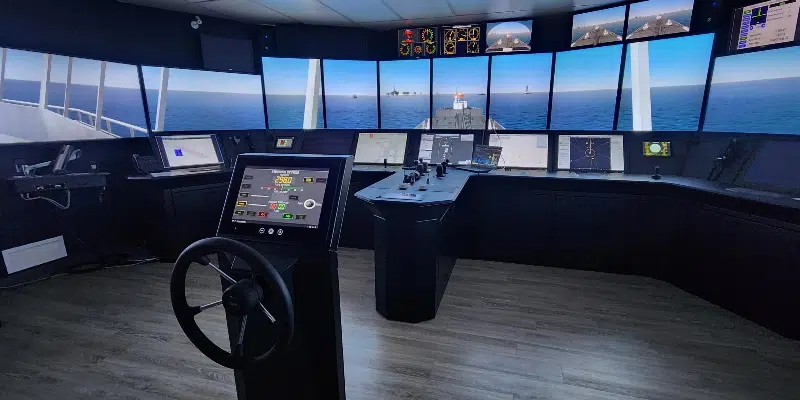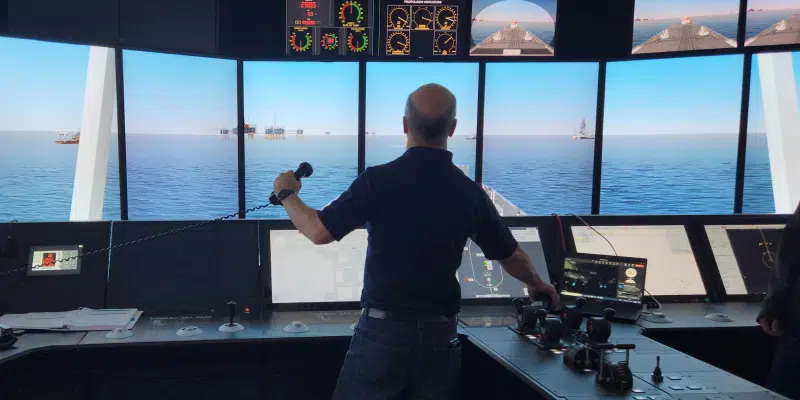The vulnerability of the marine sector to cybercriminals was under the microscope during a recent seminar at the Marine Institute.
The event, which was held in collaboration with the University of Plymouth and the Norwegian University of Science and Technology, looked at education, training, research, and awareness of maritime cybersecurity risks.

As part of the event, stakeholders took part in a simulation of what a cyber attack could look like on board a shuttle tanker in an offshore oil field heading to take a load of oil from an FPSO.
Amidst alarm bells going off, the demonstrator says the ship has lost control of its engines and steering.

Chris Hearn, Director for the Centre of Marine Simulation, outlines how quickly such an attack can take down marine systems.

He says Maersk was attacked back in 2017, and in the span of just six minutes the hackers “paralyzed” their entire system.
He says technology has been increasingly integrated into industries like shipping, which is opening them up to potential hackers.
Hearn says technology on ships is designed to despond to commands, not detect viruses. An extreme example, he says, could be that someone installs a virus on a ship that could disrupt navigation and thus take control of the ship, or they could use a virus to shut down cranes in an oil terminal.























